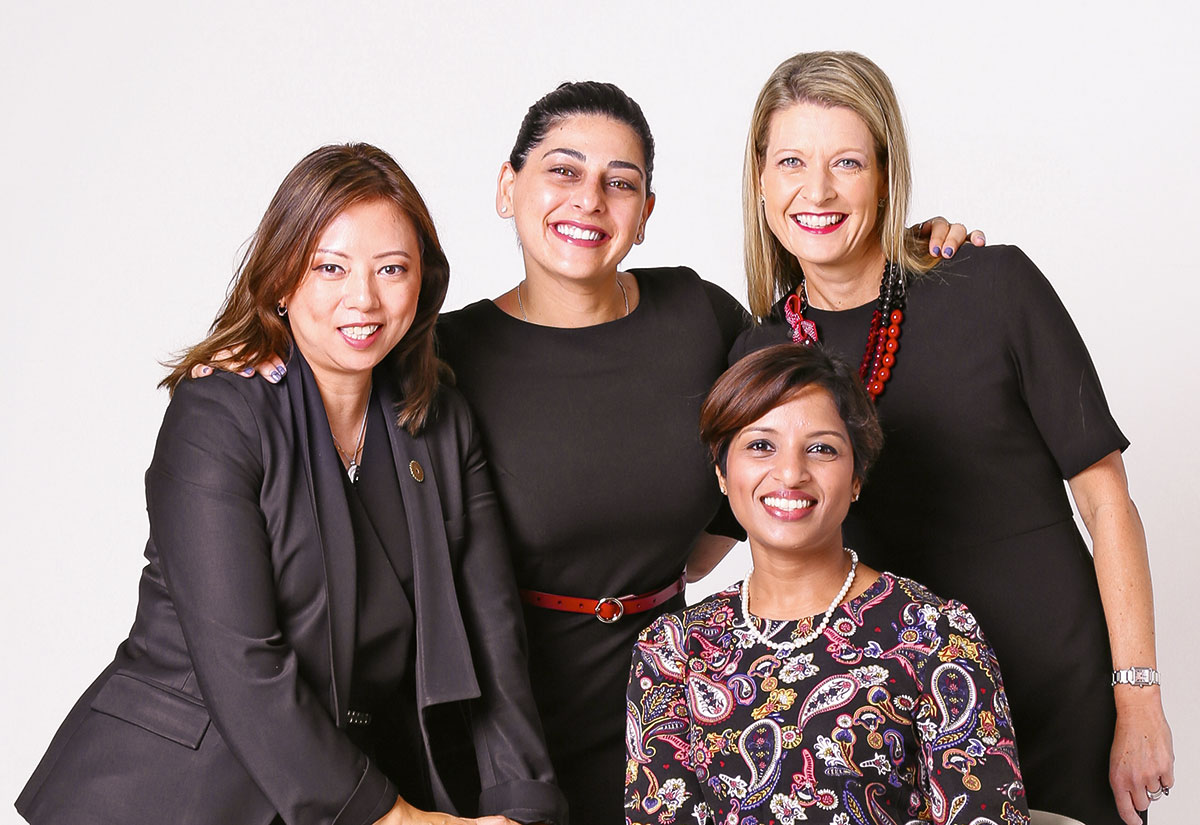Work- life balance
According to D’Cruz, because a hotel never sleeps, being a general manager requires round-the-clock commitment and in the past, an individual’s ability to offer that commitment might have been questioned.
However, she adds, “We are now seeing a deeper and more balanced understanding from the male counterparts.
“It is especially valuable because I believe women make outstanding general managers due to their multi-tasking abilities and high emotional intelligence when dealing with both their team and customers,” she says.
Agreeing with D’Cruz is Debbie Simister, AccorHotels’ vice president, learning & development, Middle East & Africa.
Recently promoted to her role, Simister has spent the last 13 years with the company in locations all over the world.
“Within AccorHotels, we have strong representation of women in entry level, supervisory and many management positions. However, at the executive levels of our structure, including hotel general management, is where we need to amplify our efforts for more gender parity,” Simister believes.
According to her, this can be attributed to several factors: support infrastructure in general is one of the essential elements to enable women to lead a fulfilling career.
“In many cases, there are limited childcare options, domestic (nanny, helper) support is unattainable due to the expense, and workplace policies are inflexible to account for school hours and other caring responsibilities,” she adds.
However Accor’s return to work policies have greatly helped her keep her career on track.
“I have always been a working mother, and have two children aged 8 and 10 years. I’m a passionate advocate that maintaining a career footing and caring for a family should not be detrimental to long term wealth of a women,” Simister says.
AccorHotels’ flexible return to work policies in Australia ensured that she was able to continue her career development with momentum.
“The organisation made it easy for me to take maternity leave, and return on both occasions to the same or similar role. Upon returning to the workplace, my salary was adjusted to take into account annual increments granted during my maternity leave, this being a critical policy, as many women on average are worse off financially than men, and even more so after periods of maternity leave,” she adds.
However, one of the big factors why there’s a disparity of women in leadership positions, Simister adds, is self-promotion and executive presence.
“Women don’t tend to negotiate on their own behalf as much as men for fear of being deemed as too aggressive or too self-promoting. Women often need to develop heightened levels of both self and situational awareness to know how to position their body language, tone and overall approach, which many women don’t know how to do, or have the confidence to do,” she says.
Simister also believes that guilt that women places on themselves is another factor. “Being successful in a senior role often means travel, and long hours, which can heavily play on women’s minds if they feel that their caring responsibilities, whether that be children or ageing parents, are impacted. In the hospitality industry specifically, the nature of the work and its requirements place a strain on women trying to balance a career and a family. It is not uncommon for hospitality professionals to be required to be physically onsite at a hotel property late at night or early in the morning, which can be difficult for women who have families. Irregular work hours and frequent requirements for travel or relocation add to the stress of women who are often expected to be the primary caregivers in their families,” she adds.
Alma Au Yeung, corporate director – strategic projects and partnerships, was appointed to her role in September 2018, to help Emaar Hospitality Group deliver as Expo 2020 Dubai’s official hotel and hospitality partner, and was tasked with planning, managing, and implementing private clubs, food and beverage outlets, and catering hubs within the expo site.
Currently spearheading an initiative called Hiya – which means ‘she’ in Arabic, Yeung is hoping the leadership programme will develop and prepare more women to take on senior roles within the organisation. Besides the personal development of women, the other pillars of the programme are creating an inclusive workplace and diversity management.
According to her, the lack of women in senior roles comes from a lack of opportunity. “In my experience, I have too often seen that opportunities have been given repeatedly to men. Perhaps this is due to a perceived male dominance in the workplace. We usually associate roles with a particular gender, and when one conjures the image of a 'CEO', it is usually a male in a luxury suit. I believe that we can all play an instrumental role in making sure that these myths are busted,” she says.

| Advertisement |









 Search our database of more than 2,700 industry companies
Search our database of more than 2,700 industry companies









